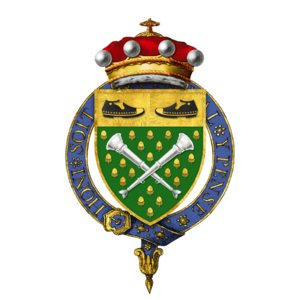Hervey Rhodes, Baron Rhodes facts for kids
Quick facts for kids
The Lord Rhodes
|
|
|---|---|
| Member of the House of Lords | |
|
Lord Temporal
|
|
| as a life peer 14 September 1964 – 11 September 1987 |
|
| Member of Parliament for Ashton-under-Lyne |
|
| In office 2 October 1945 – 25 September 1964 |
|
| Preceded by | William Jowitt |
| Succeeded by | Robert Sheldon |
| Personal details | |
| Born |
Hervey Rhodes
12 August 1895 Saddleworth, West Riding of Yorkshire, England |
| Died | 11 September 1987 Oldham, Greater Manchester, England |
| Political party | Labour |
Hervey Rhodes, also known as Baron Rhodes, was an important British politician from the Labour Party. He was born on August 12, 1895, and lived until September 11, 1987. He dedicated his life to public service, both in the military and in government.
Contents
Hervey Rhodes: A Life of Service
Early Life and Education
Hervey Rhodes was born in a place called Saddleworth in Yorkshire, England, on August 12, 1895. He went to St Mary's School in Greenfield and later studied at Huddersfield Technical College. Before his public service, he worked in the wool industry.
A Brave Airman in World War I
During the First World War, Hervey Rhodes showed great courage. He first served as a soldier with the King's Own Royal Lancashire Regiment. Later, he joined the Royal Flying Corps, which was the air force at that time. He became an observer and gunner in No. 12 Squadron, flying in an aircraft called the RE 8.
His job involved flying over enemy lines to gather information and help direct artillery fire. He often flew with pilot Lieutenant Croye Pithey. Together, they were a very successful team. They were credited with destroying five enemy aircraft and two balloons, and causing four more aircraft to go "out of control." This made them the most successful RE 8 crew of the entire war.
For his bravery, Rhodes received the Distinguished Flying Cross and a Bar (which means he earned the award a second time). In September 1918, he was seriously injured, which caused him to walk with a limp for the rest of his life. He left the military with the high rank of Lieutenant-Colonel.
Protecting Britain in World War II
Years later, during the Second World War, Hervey Rhodes was a mill-owner and a local council leader. When Britain needed to defend itself, he stepped up. He became the commanding officer of the Local Defence Volunteers (LDV) in his area. This group was formed in 1940 to protect Britain from potential invasion.
The LDV was later renamed the Home Guard. They were equipped with uniforms and weapons to help defend their communities. Major Rhodes, who soon became Lieutenant Colonel, led the 36th (West Riding) Battalion of the Duke of Wellington's Regiment. He continued to lead this battalion until the Home Guard was no longer needed.
A Distinguished Political Career
After his military service, Hervey Rhodes focused on his political career, alongside his business interests. In 1945, he first tried to become a Member of Parliament (MP) for the Labour Party. Although he didn't win that first election, he was elected as an MP for Ashton-under-Lyne later that same year.
He held several important roles in government. He was a parliamentary private secretary and later became the Parliamentary Secretary to the Board of Trade in 1950. This role involved helping with trade policies. He served as an MP until 1964.
Becoming Baron Rhodes and Later Honors
In 1964, Hervey Rhodes was given a special honor. He became a life peer, which meant he could sit in the House of Lords as Baron Rhodes. This title was "of Saddleworth in the West Riding of the County of York." He continued his public service, again serving as Parliamentary Secretary to the Board of Trade from 1964 to 1967.
He also held other important positions, such as Lord Lieutenant of Lancashire starting in 1968. This role represents the King or Queen in a county. In 1969, he became a Privy Counsellor, and in 1972, he was made a Knight Companion of the Garter, which is a very high honor. He also served as Deputy-Lord Lieutenant of Greater Manchester from 1974. Hervey Rhodes passed away at his home in Saddleworth in 1987, at the age of 92, leaving behind a legacy of dedicated service to his country.
See also
- Ashton-under-Lyne (UK Parliament constituency)
- 1945 Ashton-under-Lyne by-election
 | James Van Der Zee |
 | Alma Thomas |
 | Ellis Wilson |
 | Margaret Taylor-Burroughs |


